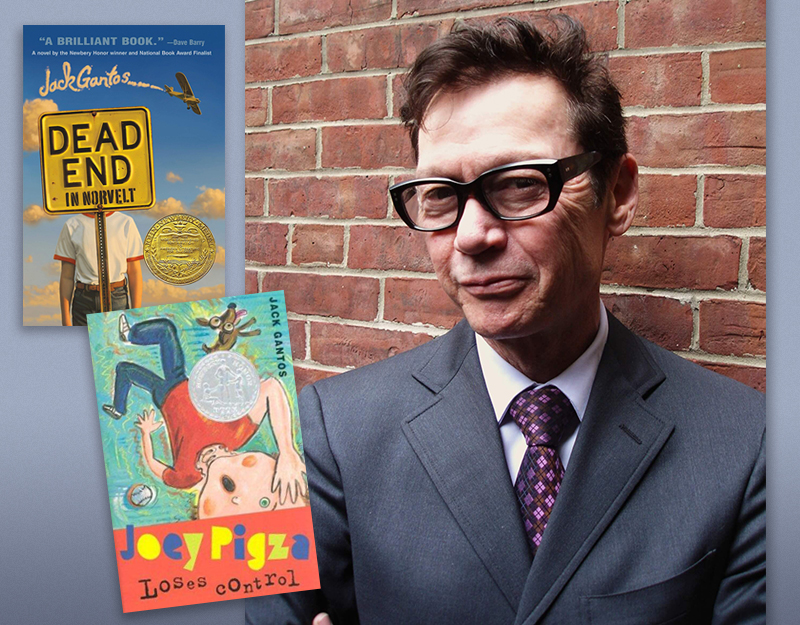Tim Wadham: The Secret Life of Lincoln Jones
 Tim Wadham has served on numerous award committees, including The Boston Globe Horn Book award, the Pura Belpré award committee twice, and the 1998 Newbery committee. He is a contributor to School Library Journal and the Horn Book Guide. His picture book, The Queen of France was published by Candlewick Press. He lives in Puyallup, WA.
Tim Wadham has served on numerous award committees, including The Boston Globe Horn Book award, the Pura Belpré award committee twice, and the 1998 Newbery committee. He is a contributor to School Library Journal and the Horn Book Guide. His picture book, The Queen of France was published by Candlewick Press. He lives in Puyallup, WA.
Lincoln Jones’ mother works at Brookside, a dementia and Alzheimer’s care facility. Lincoln goes there every afternoon after school ostensibly to do his homework, but ends up seeing much more than he really cares to see, and that is his secret life. He breaks up fights over walkers and calms down angry residents when their pudding is taken away while there is still flavor in the bowl. He sees a woman burst out of her room singing Broadway show tunes, naked. In another room is a woman he is certain is a psychic vampire—every new roommate dies shortly after moving in. Lincoln and his mother are at Brookside because they have moved to escape their abusive husband/father. Lincoln is from the south, and because of his tell-tale accent he has trouble fitting in at his new school. He is teased and bullied. To cope, Lincoln lives in his head, constantly thinking of ideas for the wildly imaginative stories he writes. He is much more comfortable in that world than in the dingy apartment his mother found for them or with the elderly people at Brookside he calls “the crazies.”
ADVERTISEMENT
ADVERTISEMENT
The year I was on the Newbery committee, our chair would always get the discussion back on track with a simple question—“Can you please speak to the literary qualities of the book?” Speak to them I can. While the actual committee cannot consider any of an author’s previous titles, it is important to point out that THE SECRET LIFE OF LINCOLN JONES is the work of a master who has honed her craft over a period of almost twenty years and over thirty books.
So what are the literary qualities that make THE SECRET LIFE OF LINCOLN JONES a “distinguished contribution to American literature for children”?
First, there is that voice. Not only does Van Draanen write with tenderness and compassion, but she also fully inhabits the voice of a eleven year-old boy. She captures Lincoln’s quirks, such as the way he often digresses as he tries to tell his story and has to force himself to return to the subject at hand. Lincoln’s voice—the way he talks, the way he describes things—is always consistent with his southern upbringing. Lincoln is a keen observer of people. The people in the laundromat, for example, are “fun to watch because you can tell they’ve got stories.” Lincoln spends much of his time trying to piece those stories together from the way people act and what they do. At Brookside, he imagines that Peggy, a resident who talks to the air, may actually be talking to ghosts. Paula, a resident who constantly taps with her fingers, might be trying to send secret instructions in Morse code. As listed in the Newbery Award criteria, Van Draanen shows “respect for children’s understandings, abilities, and appreciations” in the way she creates a totally believeable eleven year-old boy and shows him trying to understand and make sense of this new world of a “memory care” facility that has been thrust upon him.
LINCOLN JONES has lovely language. Van Draanen weaves phrases, dialogue patterns and images like threads through the story. Here’s an example: At school Lincoln has a nemesis named Kandi Kane. She won’t leave him alone. Lincoln remembers his mother telling him that if he swats at a bee, it will surely sting him. Applying this wisdom to the annoying Kandi, Lincoln decides to ignore her—to not swat. Lincoln then observes that sitting around “waiting for the thing to fly off on it’s own is terrifying.” Lincoln observes that Kandi is the “queen bee” with “swarms of kids around her.” When she speaks, the words flow out of her mouth “like warm maple syrup.” Van Draanen expands the metaphor as Lincoln writes about trying hard to not swat the “pests” on the school bus while they fling tuna at him. Lincoln uses imaginative language that takes everyday experiences and makes them not so ordinary—When Lincoln eats too many Lucky Charms for breakfast, his stomach begins hurting. “I’’d gobbled up half the milky way, and now a whole constellation of moons and stars was expanding at light speed inside of me.” One striking thing about this book, is the fact that Van Draanen’s artful use of language rarely, if ever, calls attention to itself. More often than not, gorgeous writing is more about an author and their skill with language than it is about the tale that is being spun. Van Draanen’s skill makes using great language in the service of a story look effortless.
Finally, the way the story makes you feel marks this book as “individually distinct.” Van Draanen has written a novel full of beautiful moments that lead to a very satisfying conclusion and leaves the reader full, content, and uplifted. One of these moments happens when Lincoln watches Mrs. White, the psychic vampire, die as he holds her hand. Afterward he can’t stop crying. This comes after a terrifically humorous scene where Lincoln convinces his mother to wear garlic when she goes into Mrs. White’s room so she can ward off the vampire powers. There is also a moment when Lincoln realizes that all of the people in Brookside had lives—they were lawyers, teachers…people. Lincoln begins to understand that while Brookside is not a place that he as an eleven year-old looks forward to visiting—neither have these residents looked forward to being there. Another of these revelatory moments for Lincoln comes when he tries to tell his mother that he understands she is doing this difficult and challenging work at Brookside for him. These are all moments where all of a sudden you move from humor and laughter to something very tender and special. These moments are not mawkish or sentimental but rather genuinely moving. There is no manipulation here. The way that Van Draanen is able to create moments and scenes that come by their emotion honestly and make the reader truly feel makes this book “conspicuously excellent.”
Van Draanen’s compassion is especially evident in her treatment of persons suffering from dementia, as seen from the point of view of a young person. Lincoln learns that when the “oldies” misbehave like children it is likely because they are frustrated by their limitations, and their inability to do what they once could. In her story, Van Draanen gives these adults in dementia care dignity and brings to her narrative all of the heartbreak and anguish that comes from spending two years visiting your 90 year-old mother almost daily in such a facility. Van Draanen’s real life experience caring for her mother informs this story and makes her prose all the more resonant. But more than that, the way her story shows Lincoln traveling a path of difficult life circumstances and discovering within himself empathy and the other tools necessary to make friends and overcome challenges to grow as a person, and the way that Van Draanen does this without didacticism or preachyness make THE SECRET LIFE OF LINCOLN JONES a significant achievement in literature for young readers.
Filed under: Uncategorized
About Jonathan Hunt
Jonathan Hunt is the Coordinator of Library Media Services at the San Diego County Office of Education. He served on the 2006 Newbery committee, and has also judged the Caldecott Medal, the Printz Award, the Boston Globe-Horn Book Awards, and the Los Angeles Times Book Prize. You can reach him at hunt_yellow@yahoo.com
ADVERTISEMENT
ADVERTISEMENT
SLJ Blog Network
Name That LEGO Book Cover! (#53)
Cover Reveal and Q&A: The One and Only Googoosh with Azadeh Westergaard
Exclusive: Vol. 2 of The Weirn Books Is Coming in October | News
Fighting Public School Book Bans with the Civil Rights Act
Take Five: Middle Grade Anthologies and Short Story Collections
ADVERTISEMENT








This book publishes tomorrow, and there hasn’t been lots of buzz about it, so we wanted to give you some good reasons to track it down–myself included; I haven’t read it–and then we can revisit it in the future once more of us have access. Van Draanen is best known for her fabulous SAMMY KEYES series, but she’s also written some wonderful standalone books, too, namely FLIPPED and THE RUNNING DREAM.
This review by Tim Wadham beautifully and accurately describes this magnificent book. It is definitely Newbery worthy.
I loved her Sammy Keyes books. Van Draanen is a wonderful writer, full of compassion and empathy. The Secret Life of Lincoln Jones is on my buy list.
I loved Van Draanen’s Sammy Keyes series.
And I have her book The Running Dream. She’s an inspirational writer.
I really enjoyed reading the review above – and I intend to now look out for The Secret Life of Lincoln Jones. Thanks for the heads-up. Great review.